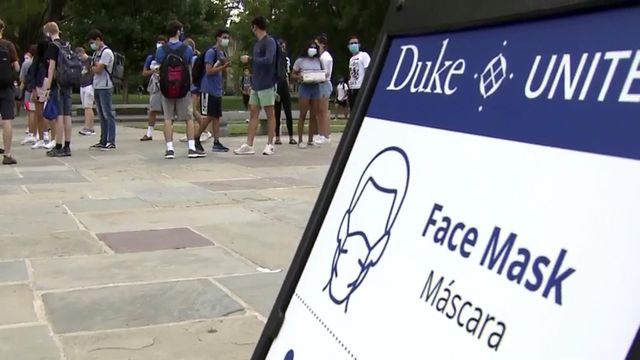Unlike UNC-Chapel Hill and NC State, Duke keeping coronavirus at bay
As North Carolina State University and the University of North Carolina at Chapel Hill face challenges with a growing number of coronavirus infections on their campuses, Duke University is, so far, having a much better outcome.
Duke released figures Monday showing that the infection rate there at 0.3 percent, with only 46 positive tests this semester out of 17,000 tests of students and staff.
By comparison, UNC-Chapel Hill has reported 905 infected students since the beginning of August, and N.C. State 871 has reported cases in students and staff in that time.
Both of those schools have halted in-person undergraduate classes, shifting them online, and have asked as many students as possible to move out of campus housing.
"I think one of the many distinguishing factors at Duke is that we do not have the large fraternity houses, sorority houses, the very large congregate living facilities," Duke Vice President of Public Affairs Mike Schoenfeld said.
Schoenfeld also credited students for sticking to rules put in place by administrators to limit the spread of the virus on campus.
"You’re seeing the, I think, the tenaciousness and persistence of Duke students in wanting to have a successful semester," he said.
In addition to limiting the number of students in dormitories on campus, Duke tested every student for the virus at the start of the school year and continues testing them.
Schoenfeld said the majority of Duke students who have tested positive are asymptomatic, showing the importance of early testing and frequent testing.
He also noted a bit of luck is involved in keeping the virus at bay.
"As encouraging and as positive as these results are, I think everybody who’s on campus, who’s involved with the university, knows that you’re one outbreak, you’re one cluster, you’re one super-spreader away from having it look very, very different," he said.












